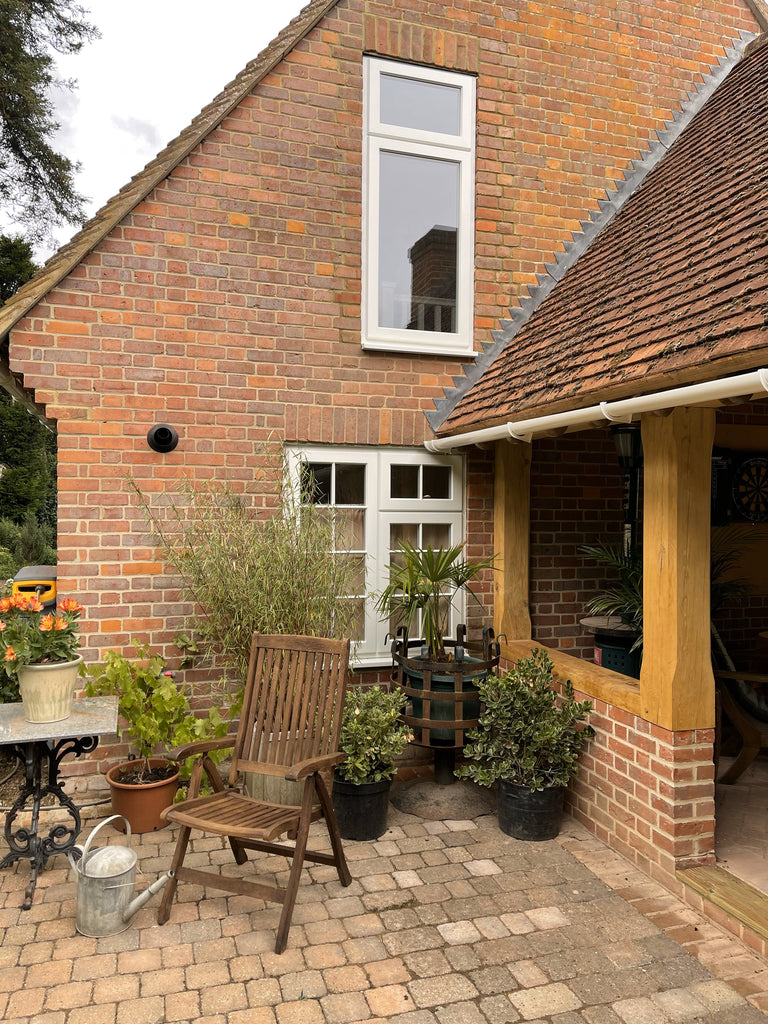
What is Document Q? Do I need it?

Understanding Document Q and PAS 24: The Essential Standards for Enhanced Building Security
Introduction
In an ever-evolving world, ensuring the safety and security of buildings has become paramount. Document Q and PAS 24 are two important standards in the construction industry that address building security measures. In this blog post, we will explore what Document Q and PAS 24 entail, their significance, and why they are crucial for modern-day buildings.
Document Q: Security of Dwellings
Document Q is a technical guide published by the UK government's Ministry of Housing, Communities, and Local Government (MHCLG). Its primary purpose is to set out security requirements for new residential dwellings, including houses and apartments. Document Q was introduced as an amendment to the Building Regulations 2010 and applies to England and Wales.
Key Features of Document Q
1. Windows and Doors: Document Q focuses on windows and external doors, recognizing that they are the primary points of entry and vulnerability in residential properties. It outlines specifications and standards for these elements to deter potential intruders.
2. Physical Security: The document emphasizes the need for enhanced physical security measures such as robust door frames, locks, hinges, and glazing systems. These requirements help prevent unauthorized access and protect occupants from potential security threats.
3. Design Considerations: Document Q highlights the importance of considering security measures during the design and construction phases of residential dwellings. It encourages the integration of security features seamlessly into the building's overall design to maintain aesthetics while ensuring safety.
PAS 24: Enhanced Security Performance Requirements for Doors and Windows
PAS 24, which stands for "Publicly Available Specification 24," is a British standard developed by the British Standards Institution (BSI). PAS 24 sets out the minimum requirements for the enhanced security performance of doors and windows intended to resist forced entry attempts.
Key Aspects of PAS 24
1. Physical Resistance: PAS 24 focuses on the physical resistance of doors and windows to withstand forced entry. It specifies criteria for hardware, glazing, and locking systems, ensuring they meet stringent security standards.
2. Testing Procedures: Manufacturers who seek to comply with PAS 24 must subject their products to rigorous testing procedures conducted by accredited laboratories. These tests simulate common burglary methods to evaluate the resistance and performance of the doors and windows under such circumstances.
3. Certification and Compliance: Products that meet the requirements of PAS 24 are granted certification, which provides assurance to customers and stakeholders about the product's security performance. Compliance with PAS 24 is often a requirement in projects that aim to achieve high standards of building security.
Why Do You Need Document Q and PAS 24?
1. Deterrence and Protection: By adhering to the guidelines and specifications outlined in Document Q and PAS 24, buildings can significantly enhance their resistance to forced entry attempts. This acts as a strong deterrent to potential intruders, helping to protect the occupants and their belongings.
2. Building Regulations Compliance: In many cases, compliance with Document Q and PAS 24 is a legal requirement imposed by building regulations. By meeting these standards, developers, architects, and contractors can ensure their projects meet the necessary regulatory obligations.
3. Consumer Confidence: Document Q and PAS 24 provide assurance to homeowners, tenants, and buyers that the buildings they inhabit or invest in have undergone rigorous security testing and meet high industry standards. This fosters consumer confidence and trust in the construction industry.
4. Insurance Benefits: Compliance with Document Q and PAS 24 may also have positive implications for insurance coverage. Insurance companies often favor buildings that meet stringent security requirements, potentially resulting in lower premiums or more comprehensive coverage.
Conclusion
In an era where security threats are a concern, Document Q and PAS 24 play a pivotal role in enhancing the safety and security of residential buildings
. By adhering to these standards, developers and construction professionals can create robust structures that provide peace of mind to occupants, while also meeting legal requirements and industry best practices. Prioritizing building security not only safeguards the physical integrity of properties but also ensures the well-being of those who call them home.
Introduction
In an ever-evolving world, ensuring the safety and security of buildings has become paramount. Document Q and PAS 24 are two important standards in the construction industry that address building security measures. In this blog post, we will explore what Document Q and PAS 24 entail, their significance, and why they are crucial for modern-day buildings.
Document Q: Security of Dwellings
Document Q is a technical guide published by the UK government's Ministry of Housing, Communities, and Local Government (MHCLG). Its primary purpose is to set out security requirements for new residential dwellings, including houses and apartments. Document Q was introduced as an amendment to the Building Regulations 2010 and applies to England and Wales.
Key Features of Document Q
1. Windows and Doors: Document Q focuses on windows and external doors, recognizing that they are the primary points of entry and vulnerability in residential properties. It outlines specifications and standards for these elements to deter potential intruders.
2. Physical Security: The document emphasizes the need for enhanced physical security measures such as robust door frames, locks, hinges, and glazing systems. These requirements help prevent unauthorized access and protect occupants from potential security threats.
3. Design Considerations: Document Q highlights the importance of considering security measures during the design and construction phases of residential dwellings. It encourages the integration of security features seamlessly into the building's overall design to maintain aesthetics while ensuring safety.
PAS 24: Enhanced Security Performance Requirements for Doors and Windows
PAS 24, which stands for "Publicly Available Specification 24," is a British standard developed by the British Standards Institution (BSI). PAS 24 sets out the minimum requirements for the enhanced security performance of doors and windows intended to resist forced entry attempts.
Key Aspects of PAS 24
1. Physical Resistance: PAS 24 focuses on the physical resistance of doors and windows to withstand forced entry. It specifies criteria for hardware, glazing, and locking systems, ensuring they meet stringent security standards.
2. Testing Procedures: Manufacturers who seek to comply with PAS 24 must subject their products to rigorous testing procedures conducted by accredited laboratories. These tests simulate common burglary methods to evaluate the resistance and performance of the doors and windows under such circumstances.
3. Certification and Compliance: Products that meet the requirements of PAS 24 are granted certification, which provides assurance to customers and stakeholders about the product's security performance. Compliance with PAS 24 is often a requirement in projects that aim to achieve high standards of building security.
Why Do You Need Document Q and PAS 24?
1. Deterrence and Protection: By adhering to the guidelines and specifications outlined in Document Q and PAS 24, buildings can significantly enhance their resistance to forced entry attempts. This acts as a strong deterrent to potential intruders, helping to protect the occupants and their belongings.
2. Building Regulations Compliance: In many cases, compliance with Document Q and PAS 24 is a legal requirement imposed by building regulations. By meeting these standards, developers, architects, and contractors can ensure their projects meet the necessary regulatory obligations.
3. Consumer Confidence: Document Q and PAS 24 provide assurance to homeowners, tenants, and buyers that the buildings they inhabit or invest in have undergone rigorous security testing and meet high industry standards. This fosters consumer confidence and trust in the construction industry.
4. Insurance Benefits: Compliance with Document Q and PAS 24 may also have positive implications for insurance coverage. Insurance companies often favor buildings that meet stringent security requirements, potentially resulting in lower premiums or more comprehensive coverage.
Conclusion
In an era where security threats are a concern, Document Q and PAS 24 play a pivotal role in enhancing the safety and security of residential buildings
. By adhering to these standards, developers and construction professionals can create robust structures that provide peace of mind to occupants, while also meeting legal requirements and industry best practices. Prioritizing building security not only safeguards the physical integrity of properties but also ensures the well-being of those who call them home.


